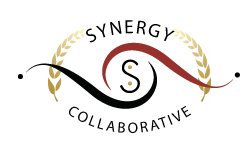Unlocking the Powers of Kindness: How Being Nice Can Transform Your Life
In a world often characterized by competitiveness and self-interest, the simple act of kindness can sometimes feel like a rare commodity. However, its impact is profound, not just on those who receive it, but also on those who give it. Kindness has the power to transform lives in unexpected ways, fostering stronger connections, enhancing well-being, and creating a ripple effect of positivity throughout communities. In this blog post, we’ll explore the myriad ways in which kindness can unlock transformative powers and enrich our lives.
The Science Behind Kindness
Research in psychology and neuroscience has shown that acts of kindness trigger the release of oxytocin, often referred to as the “love hormone” or “bonding hormone.” Oxytocin is associated with feelings of trust, connection, and overall well-being. When we engage in acts of kindness, whether it’s a simple smile, a thoughtful gesture, or a helping hand, we not only boost our own levels of oxytocin but also those of the recipient, strengthening social bonds and fostering a sense of belonging.
Building Stronger Connections
Kindness is a universal language that transcends cultural barriers and brings people together. By showing empathy and compassion towards others, we create bonds built on mutual respect and understanding. Whether it’s lending a listening ear to a friend in need, offering support to a colleague facing challenges, or volunteering in our communities, acts of kindness nurture relationships and cultivate a sense of unity. These connections not only enrich our lives but also create networks of support that can carry us through difficult times.
Enhancing Mental and Emotional Well-being
The benefits of kindness extend beyond social connections to encompass mental and emotional well-being. Studies have shown that practicing kindness can reduce stress, anxiety, and symptoms of depression. When we focus on helping others, we shift our attention away from our own worries and insecurities, leading to a greater sense of fulfillment and purpose. Moreover, acts of kindness stimulate the brain’s reward centers, leading to feelings of happiness and satisfaction.
Cultivating a Culture of Kindness
Kindness is contagious, and even small acts can have a ripple effect, inspiring others to pay it forward. By modeling kindness in our interactions and leading by example, we can create a culture of compassion and empathy in our families, workplaces, and communities. Simple gestures like holding the door for someone, expressing gratitude, or offering words of encouragement can have a profound impact on the recipient and inspire others to follow suit.
Conclusion
In a world that often emphasizes individual achievement and success, it’s easy to overlook the transformative power of kindness. Yet, by embracing kindness as a guiding principle in our lives, we not only enrich the lives of others but also experience profound personal growth and fulfillment. Whether it’s through small acts of generosity or larger gestures of compassion, each act of kindness has the potential to create positive change and make the world a better place. So let’s unlock the powers of kindness and embark on a journey of transformation—one kind act at a time.
Would you like to do live streams like this. Check out the StreamYard software.










